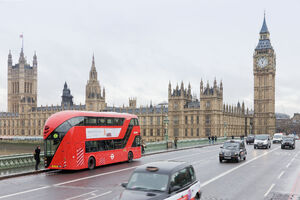
London is the capital city of England and the United Kingdom. It is the most populous region, urban zone and metropolitan area in the United Kingdom. Standing on the River Thames, London has been a major settlement for two millennia, its history going back to its founding by the Romans, who named it Londinium. London's ancient core, the City of London, largely retains its 1.12-square-mile (2.9 km2) mediaeval boundaries and in 2011 had a resident population of 7,375, making it the smallest city in England. Since at least the 19th century, the term London has also referred to the metropolis developed around this core. The bulk of this conurbation forms the London region and the Greater London administrative area, governed by the Mayor of London and the London Assembly.
Peel In London
Peel left America in March 1967 for London, bringing his first wife Shirley Anne Milburn with him. Peel and Shirley first stayed with Peel's mother, who lived in Jameson Street, Notting Hill (he occasionally mentioned the street name on the air on his early Radio London and BBC shows) but the couple soon moved into a flat in Fulham and Peel began looking for work. His first job was for the pirate station Radio London, where, on the advice of a secretary working at the station's offices in Curzon Street, he dropped his surname Ravenscroft and adopted the name Peel. During his periods of shore leave, Peel regularly attended the legendary underground UFO club, which had its best period in the summer of 1967 when its weekly events were held in the Blarney Club, Tottenham Court Road. Later it moved to the Roundhouse, Chalk Farm, which, even after UFO closed in autumn 1967, remained a regular venue for many of the artists featured on Top Gear.
After Radio London was closed by the Marine Offences Act in August 1967, Peel found work for the new BBC Radio One station in London a month later and debuted on 01 October 1967 with Pete Drummond. Peel worked for Radio One until his death in October 2004. During his time at Radio One, Peel would visit record shops and do many gigs in London. Yet because of what he described as his "provincial" roots and rural upbringing, he remained wary of the city. He had no interest in clothes fashions and therefore never felt at home in what was known as "Swinging London". He encouraged the hippy culture which became based around Notting Hill Gate and was one of its leading figures, contributing a regular column to the newspaper International Times, whose offices were in Southampton Row and later in Betterton Street.. (On the Night Ride of 03 July 1968 he played a track "for all those working at 22 Betterton Street, WC2".) But after a time he grew increasingly weary of the cliquishness of the late 1960s London underground scene, claiming that many of the participants were not interested in changing society but only in following fashion and wearing trendy clothes (velvet trousers, popular in the early 1970s, were for him a sign of inauthenticity). As he said in an interview in the underground paper Friends (issue 26, March 22, 1971, p.20):
One thing I remember from Friends is a piece by an American guy who said the only thing the British are into is clothes...it really hit me, because though we are all wage-slaves the kids in Northampton may have kicked that habit far more than the trendies in London. The Kings Road and Carnaby Street and the way fashions like hot pants spread in Britain is unique.....
After living in flats in Regent's Park and Notting Hill, he and Sheila were happy to leave the city for the peace of the Suffolk countryside in 1972.
John Peel's London
- St Paul's church in Lorrimore Square SE17, where John and Sheila were married on 31 August 1974.
- The Holme in Regent's Park, where the wedding reception was held.
- Buckingham Palace, where Peel received his OBE in November 1998.
- BBC Yalding House, former home of Radio 1.
- BBC Maida Vale studios. Home to many a Peel session.
- Former Middle Earth club, a regular venue for Peel as DJ in 1967.
- Former Roxy Club, London's first punk venue. Peel attended his first gig there on 29 January 1977.
- Former Vortex Club, where Peel saw the Slits play live on 15 August 1977.
- 100 Club on Oxford Street. Peel attended two punk gigs there in 1976.
- Former Subterranea club, where Peel's surprise 50th birthday celebrations were hosted.
- Fabric club, where Peel performed his DJ set from 2002 onwards.
- Former Rainbow Theater, where Peel saw the Prefects, but not the Clash, on 09 May 1977.
- Institute Of Contemporary Arts. In early October 1984, Peel chose all the bands for ICA Rock Week, which included a set by SPK that ended in a riot.
- Southbank Centre which hosted the Peel-curated Meltdown festival in 1998.
- Former Rough Trade record shop. Original home of UK indie record shop chain and label.
- Former Sterns record shop. African music shop often visited by Peel and Andy Kershaw.
- Sounds of the Universe record shop in Soho, a favourite of Peel.
- Wembley Stadium. Peel saw Liverpool win the 1978 European Cup final at the original ground.
- Loftus Road. Peel attended the match between QPR and Liverpool on 23 November 1992.